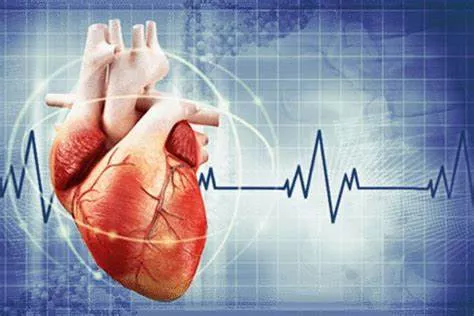Heartburn, also known as acid reflux, is a common condition that affects millions of people worldwide. It occurs when stomach acid flows back into the esophagus, causing a burning sensation in the chest or throat. While heartburn is typically associated with gastrointestinal issues, there has been growing interest in understanding its potential connection to heart health, particularly whether it can cause arrhythmia, a condition characterized by irregular heartbeats. This article explores the relationship between heartburn and arrhythmia, examining the underlying mechanisms, risk factors, and potential implications for individuals suffering from these conditions.
Understanding Heartburn And Its Causes
Heartburn is primarily caused by the malfunctioning of the lower esophageal sphincter (LES), a ring of muscle that acts as a valve between the esophagus and the stomach. When the LES weakens or relaxes inappropriately, stomach acid can escape into the esophagus, leading to the characteristic burning sensation. Several factors can contribute to the development of heartburn, including:
Dietary Habits: Consuming large meals, fatty or spicy foods, caffeine, alcohol, and carbonated beverages can trigger heartburn.
Lifestyle Factors: Obesity, smoking, and a sedentary lifestyle are significant risk factors.
Medical Conditions: Gastroesophageal reflux disease (GERD), hiatal hernia, and pregnancy can increase the likelihood of experiencing heartburn.
Medications: Certain medications, such as nonsteroidal anti-inflammatory drugs (NSAIDs), aspirin, and some blood pressure medications, can exacerbate heartburn symptoms.
see also: Herbal Remedies for Afib
Physiological Mechanisms Linking Heartburn And Arrhythmia
While heartburn and arrhythmia are distinct conditions, several physiological mechanisms suggest a potential link between the two:
Vagal Nerve Stimulation: The vagus nerve plays a crucial role in regulating heart rate and digestive functions. Acid reflux can stimulate the vagus nerve, leading to changes in heart rate and rhythm. This stimulation can result in palpitations or arrhythmias in some individuals.
Inflammation and Stress Response: Chronic acid reflux can cause inflammation in the esophagus and surrounding tissues.
This inflammatory response can activate the autonomic nervous system, leading to increased stress hormones like adrenaline. Elevated stress hormone levels can contribute to arrhythmias by increasing heart rate and causing imbalances in the electrical conduction system of the heart.
Esophageal Spasms: Severe acid reflux can cause esophageal spasms, which may mimic the symptoms of a heart attack.
These spasms can also lead to chest pain and palpitations, potentially triggering arrhythmias in susceptible individuals.
Clinical Evidence Supporting The Link
Several studies have investigated the relationship between heartburn and arrhythmia, providing valuable insights:
Epidemiological Studies: Research has shown that individuals with GERD are more likely to experience arrhythmias compared to those without GERD. A study published in the “American Journal of Gastroenterology” found a significant association between GERD and atrial fibrillation, suggesting that acid reflux might contribute to the development of arrhythmias.
Case Reports and Clinical Observations: Numerous case reports have documented instances where patients with severe acid reflux experienced arrhythmias. In some cases, treating the acid reflux led to a resolution of the arrhythmias, further supporting the connection between the two conditions.
Mechanistic Studies: Experimental studies on animal models have demonstrated that acid reflux can induce changes in heart rate and rhythm through vagal nerve stimulation. These findings provide a biological basis for the observed clinical associations.
Risk Factors for Heartburn-Induced Arrhythmia
Certain factors can increase the likelihood of experiencing arrhythmias in the context of heartburn:
Severity of GERD: Individuals with severe or chronic GERD are at higher risk of developing arrhythmias. Frequent acid reflux episodes can lead to sustained inflammation and vagal nerve stimulation, increasing the probability of arrhythmic events.
Coexisting Cardiovascular Conditions: People with underlying heart conditions, such as coronary artery disease or heart failure, may be more susceptible to arrhythmias triggered by acid reflux. The interplay between cardiac and gastrointestinal systems can exacerbate the risk.
Age and Lifestyle Factors: Older adults and those with unhealthy lifestyle habits, such as smoking, excessive alcohol consumption, and poor diet, are more prone to both heartburn and arrhythmias. The combination of these factors can amplify the likelihood of experiencing arrhythmias.
Managing Heartburn to Prevent Arrhythmia
Lifestyle Modifications
Making specific lifestyle changes can help manage heartburn and reduce the risk of arrhythmias:
Dietary Adjustments: Avoiding trigger foods, eating smaller meals, and not lying down immediately after eating can minimize acid reflux episodes. Incorporating more fiber-rich foods and staying hydrated can also improve digestive health.
Weight Management: Maintaining a healthy weight can alleviate pressure on the stomach and LES, reducing the frequency and severity of heartburn. Regular exercise can aid in weight management and improve overall cardiovascular health.
Smoking Cessation and Alcohol Moderation: Quitting smoking and limiting alcohol intake can significantly reduce the risk of both heartburn and arrhythmias. These substances can irritate the esophagus and affect heart rhythm.
Medical Interventions
For individuals with persistent or severe heartburn, medical interventions may be necessary:
Medications: Over-the-counter antacids, H2 receptor blockers, and proton pump inhibitors (PPIs) can help reduce stomach acid production and alleviate heartburn symptoms. In some cases, prescription medications may be required.
Surgical Options: For individuals with refractory GERD, surgical procedures such as fundoplication or LINX device implantation can provide relief by strengthening the LES and preventing acid reflux.
Monitoring and Treating Arrhythmias: Regular monitoring of heart rhythm through electrocardiograms (ECGs) and wearable devices can help detect arrhythmias early. Depending on the type and severity of the arrhythmia, treatments may include medications, lifestyle modifications, or invasive procedures like catheter ablation.
Conclusion
The potential connection between heartburn and arrhythmia underscores the complex interplay between gastrointestinal and cardiovascular health. While more research is needed to fully understand the mechanisms linking these conditions, current evidence suggests that acid reflux can indeed contribute to arrhythmic events through vagal nerve stimulation, inflammation, and esophageal spasms. Individuals with severe or chronic heartburn should be aware of the potential risk of arrhythmias and take proactive steps to manage their symptoms through lifestyle modifications and medical interventions.
By addressing heartburn effectively, it may be possible to reduce the incidence of arrhythmias and improve overall health and well-being.

